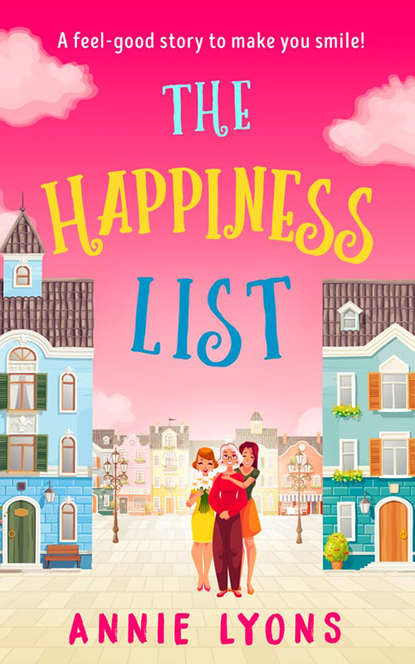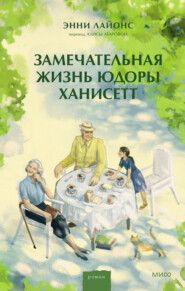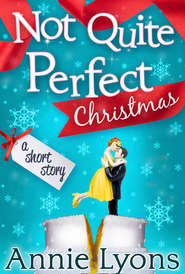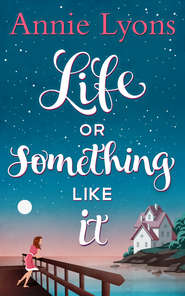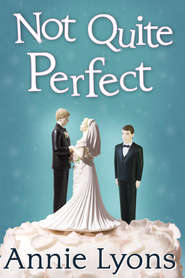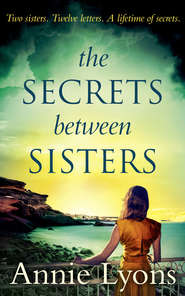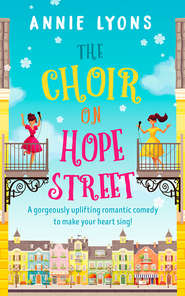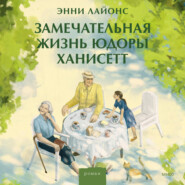По всем вопросам обращайтесь на: info@litportal.ru
(©) 2003-2024.
✖
The Happiness List: A wonderfully feel-good story to make you smile this summer!
Автор
Год написания книги
2018
Настройки чтения
Размер шрифта
Высота строк
Поля
‘Why don’t you challenge Grandpa to a game of something,’ suggested Angela to Charlie.
Fran’s heart sank. She could tell that her mother wanted to ‘chat’, which usually involved her talking and Fran listening to a list of everything she was doing wrong.
‘Okay, Grandpa, how about Connect Four? Although, you should know that I’ve been practising with Jude and I’m getting pre-tty good,’ said Charlie.
‘You’re on!’ cried Bill, following her in the direction of the living room.
‘Come on then. Out with it,’ said Fran, once they were out of earshot.
‘What do you mean?’ asked Angela with feigned innocence. Fran raised her eyebrows. ‘Oh, very well,’ said her mother. She stood up straighter and fixed Fran with a look. ‘It’s time you acknowledged your grief.’
Fran scowled. ‘I acknowledge it every day of my sodding life.’
‘No you don’t, Fran, and I’m partly to blame.’
‘Wow. Can I have that in writing?’
Angela cocked her head to one side and pursed her lips. ‘You kept going because you had to and I encouraged that but in doing so you’ve never properly faced the grief.’
‘Funny, because I felt as if the grief was punching me in the face on a daily basis but obviously I was skipping through meadows of wild flowers without even realizing it.’
Angela raised her eyebrows. ‘This is exactly what I’m talking about.’
‘What?’ snapped Fran.
Angela gestured with her hands. ‘This. This attitude. This sarcasm. This dark humour. You’re not facing your grief. You’re railing against it. And in doing so you avoid the pain instead of facing it head on.’
Fran was incredulous. ‘What do you mean?’
‘I mean, my darling, you replace it with all manner of things – anger, cynicism and so on – when you need to open up because that’s the only way you can move on.’
‘I don’t want to move on,’ said Fran, folding her arms
Angela’s face softened. ‘I don’t mean forget Andy, I just mean get to a place where you can accept the world without him.’
‘Thank you, Professor Freud – you should have been my counsellor. It would have saved me a lot of bother.’
‘I just want you to be happy.’
Fran stared at her. She wanted to say, ‘I am happy,’ but there was no way she’d get a lie that big past Angela Cooper. She turned back to the carrot she was chopping and an uneasy silence descended. Her body stiffened as her mum placed a hand on her shoulder.
‘Just think about it, Fran. That’s all I ask. It’s been two years. Now shall I lay the table?’
‘Thanks.’
As her mother bustled round the kitchen, the same dead-end thought drifted through Fran’s head like a song on repeat.
Accept a world without Andy? Why on earth would I want to do that?
Chapter Three (#u5c3859b4-bf0a-5533-9def-f065b138817a)
Pamela
It was fine. Really. Absolutely fine. Two out of three Mother’s Day cards were fine. A declaration that the majority of her children were thinking of her. There were plenty worse off.
‘He’s a lazy, selfish bugger,’ Barry declared as they sat down to Sunday lunch. ‘Doesn’t think about anyone but himself. He lives the nearest and does the least.’
‘Oh shush, Barry. It doesn’t matter,’ said Pamela. But it did matter. Of course it mattered. Another moment in her life that she shrugged off, pretending she didn’t mind when in actual fact it exhausted her brain every waking second. Matthew. Her middle son. A constant worry and a big mystery to her.
Her other children were getting on with their lives. Her eldest, Laura was a chef, working for a trendy chain of Mexican restaurants in the West End, living in north London with her girlfriend, Jax. Her youngest, Simon was an app designer. He had set up his own business and become quite successful with a game called Run, Bob, Run, in which a gigantic polar bear called Bob had to run across various different landscapes, avoiding sharks, vultures and other similar nasties. Pamela had tried to play it once and felt rather sorry for Bob but apparently it was a big hit with pre-schoolers and meant that Simon could afford a lovely Georgian semi-detached in Bristol, which he shared with his software engineer girlfriend, Skye.
Pamela’s middle son Matthew, on the other hand, was a relatively unsuccessful journalist and writer, living in a flat-share in Clapham in the same place he had moved to after leaving university. He was thirty-three now and whilst the other residents had changed numerous times over the past twelve years or so, Matthew remained in situ. He made just enough money to get by, along with occasional handouts from Pamela.
‘Don’t mention it to Dad,’ she would cluck indulgently, posting a folded wad of twenty-pound notes into his pocket following another surprise visit. She chose to ignore the fact that he only popped round when he needed something. He was her son, after all. What was the world coming to if you couldn’t turn to your own mother in times of need?
Pamela stared down at her lunch – the perfect roast, with slices of tender beef, Yorkshires as light as clouds, crispy roast potatoes, veg and gravy. She glanced up at her husband, who was scoffing it with gusto.
‘Belicious,’ he declared through a mouthful of food. Within minutes, it was gone. Barry sat back in his chair, patting his bulging belly appreciatively. ‘Are you not eating, love?’ he asked, staring at her untouched food.
‘I’m not that hungry,’ she said.
‘Maybe have it later, eh?’ he ventured. Pamela nodded. ‘Right, well I’d best get back to it – got to get the peas in before dark.’ He hauled himself to his feet and left the room.
Pamela looked at the clock. Twenty past one on Mother’s Day. When families up and down the land were sitting down to celebrate the one who had given them life, who had brought them into the world and nurtured them as best they could.
And here she sat. Alone. While her husband tended his garden and her children got on with their lives. Weren’t these supposed to be her golden years – the time when she embraced her life again, like an old forgotten friend? And yet, Pamela had spent so long being a wife and mother that she felt like the last person at a party after everyone else had gone – sad that it was over and wishing she could do it all again.
She left the table and went upstairs to the box room at the front of the house where she kept her photographs. She liked to come in here, to wallow in the memories of when she’d felt really happy. She picked out a random album and flicked it open, smiling down at a photograph of the three children on holiday in Weymouth. They were sitting on the sand – Laura in the middle, Simon to her left and Matthew on her right. Laura had her arms around her brothers and they were all grinning, their faces covered with ice cream. Pamela knew their exact ages – Laura had been seven, a right little bossyboots, organizing her brothers for every activity from sandcastle building to beach cricket. Matty and Simon didn’t mind, of course. They were five and two and more than happy to comply with Laura who, as their big sister, seemed to know everything. They eyed her as if she was a mystical sorceress, holding the secrets of the universe in her pudgy grasp.
Pamela longed to leap into that photograph, to be back in that time when she still had so much to offer – when she was their whole world. They were still her whole world today. It’s just that she wasn’t theirs. She could remember Matty on the last night of that holiday. He had wrapped his chunky little arms tightly around her neck and whispered into her ear. ‘I’m never going to leave you, Mummy.’
Pamela realized that she was sitting with her arms wrapped around her chest now and felt breathless with sadness at the memory. She longed for the feel of a child’s body in her arms – that vital warmth and pure essence of love. She missed it so much. She missed being needed.
Pamela jumped with surprise as the doorbell rang. She made her way downstairs, thinking it would be Barry having locked himself out. She opened the front door and was confronted by a gigantic floral bouquet and the heady perfume of lilies.
‘Happy Mother’s Day, Mum,’ said the bouquet.
‘Oh, Matty,’ cried Pamela, her sadness giving way to delight.
Matthew peered around the flowers with a grin. Such a handsome boy. Although he did look a little pale. She would give him a plate of dinner. Feed him up a bit. ‘Hello, Mum. Can I come in?’
‘Of course, of course!’ she said, accepting the flowers and taking a step back to let him over the threshold. It was then that she noticed the large rucksack leaning in the porch. Matthew’s rucksack.
‘Actually, Mum. There’s something I need to ask you,’ he said with a wrinkle-nosed grimace.
Chapter Four (#u5c3859b4-bf0a-5533-9def-f065b138817a)
Heather





